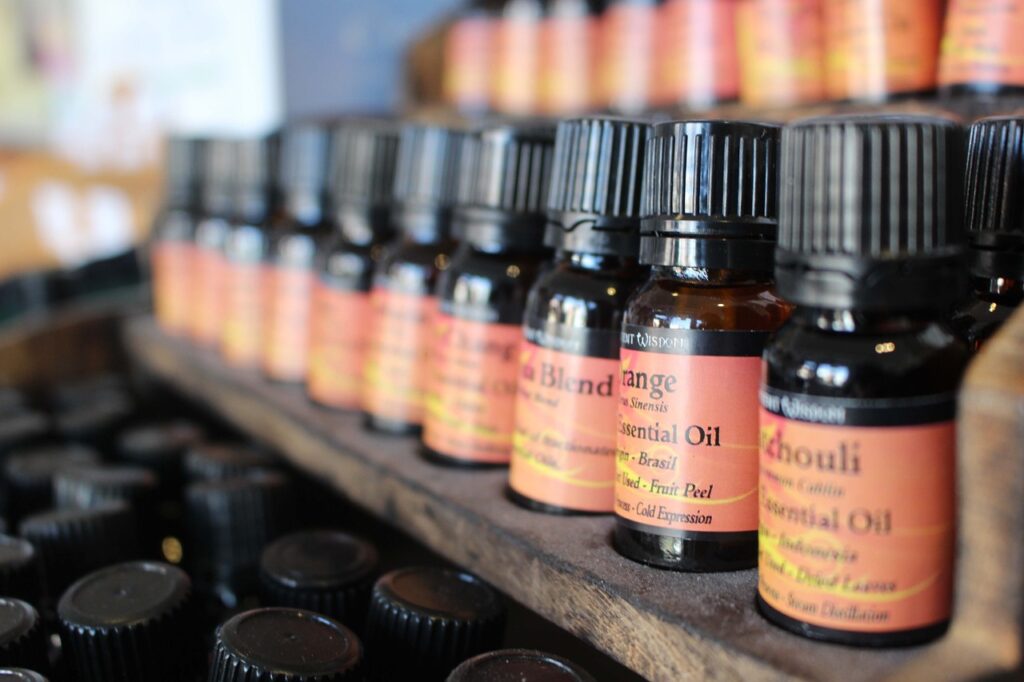
Common Mistakes When Using Essential Oils

Essential oils have many health benefits such as stress and anxiety relief, improved sleep, headache relief and much more. However, not many people are aware that the improper use of essential oils may be dangerous as they are highly concentrated and must be handled with caution.
The most common essential oil mistakes that people make when they first start using essential oils include the following:
1. Ignoring Safety Recommendations
Ignoring safety recommendations is probably the most dangerous thing you can do. Essential oils are highly concentrated and may lead to adverse effects with excessive use. Some may interact with medicines or supplements and may have different effects on young children or the elderly. Before using an essential oil you must always follow the directions and check the contraindications.
2. Not Following the Directions for Use
The most popular ways to use essential oils are by inhalation or topically.
Inhalation
This is the safest way to use essential oils and it is the fastest way to experience their effects. Use a diffuser to ensure you inhale the oil safely. Always follow the dilution directions and always diffuse in a well ventilated room. Always diffuse in half hour intervals with regular breaks.
Topical Use
Some essential oils can cause skin irritation when applied in a concentrated form or when left on for too long. You must always find the appropriate dilution before applying an essential oil to the skin, as well as the dose and usage duration.
3. Using Oils in the Wrong Location
When applying essential oils directly to your skin there are only certain areas where they should be applied. Even after diluting the oils with another oil, if they are not mixed into a cream or lotion, the best locations are the wrists, ankles, behind the ears, and the fingers. There are special pressure points in these areas which make them more effective. Of course there are going to be some exceptions, such as putting the oils on your forehead or temples if you have a bad headache, but the main pressure points should be used most often.
4. Not Combining Them With a Carrier Oil
Carrier oils are oils that you use with essential oils to dilute them. Therefore, when essential oils are to be applied to the skin they must always be diluted.
If the essential oils are added to a spray bottle with water they are already diluted enough with water, so you don’t need to worry about it. However, when applying directly to your skin, you should use carrier oils such as jojoba oil, olive oil, and grapeseed oil. You must always follow the instructions on the bottle otherwise they can irritate your skin as pure essential oils are very harsh and not already diluted when they are in the bottle.
5. Using Oils in the sun which cause photosensitivity
Some oils may cause photosensitivity. This means that they may increase the sensitivity of the skin to the sun thus increasing the risk of severe sunburn. You must never therefore apply essential oils which cause photosensitivity before going out in the sun or using a sunbed.
6. Using Oils on Anyone
Essential oils work for many people but they are not suitable for everyone. Before you use an oil, you should test it in its diluted state on just a small area of skin. This lets you know if you are sensitive to that oil or not. In addition, remember that there are age restrictions for using essential oils; infants and children can sometimes use them, but you should be cautious and ask your pediatrician before doing so.
7. Ignoring Other Treatments
Essential oils provide a lot of amazing health benefits, but they might not be enough just using them on their own. If you suffer from anxiety, using lavender and chamomile is great for relaxation and reducing panic attacks, but don’t forget about other natural remedies like acupuncture, meditation, and herbs. In most cases, essential oils work best when combined with other natural remedies.
